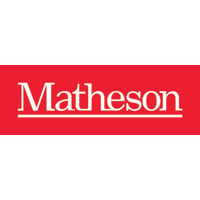

General counsel | The Damovo Group



Ian Quigley
General counsel | The Damovo Group
What are the most significant cases or transactions that your legal team has recently been involved in?
As a legal team, our primary objective is to be a key enabler and strategic business partner for the various regions and business units within the Damovo Group. We aim to be business advisers with legal expertise. In this capacity, we strive to facilitate the achievement of business strategy and commercial objectives, whilst managing legal risk in a pragmatic and commercially focused way. This approach requires the legal team to be deeply involved in and familiar with the Damovo business to ensure that our input is considered in all strategic projects and cross-functional initiatives being rolled out across the Group.
During the past 12 months, the legal team has managed a wide variety of matters. At a regional level, these matters have included several multi-million Euro contracts with new and existing global customers in Europe and the US; amicable settlement of a long-standing deferred consideration pricing dispute following a historic acquisition in Belgium; the establishment of a risk and compliance committee across the Group; and the successful roll-out of legal tools and training within all of our markets. At a Group level, there has been a strong focus on proactive stakeholder management and engagement with all of our shareholders; senior lenders; creditors and wider stakeholder groups.
As a team, we believe that ongoing feedback is critical to understanding our value to the business and ensuring that we are delivering in a way that is aligned to the needs of the business. In this context, we provide regular visibility to our executive management on all legal matters by way of a bi-monthly legal tracker and circulate regular group-wide surveys to obtain feedback on areas for improvement and refinement.
Could you share an example of a time when you came up with an innovation that improved how your legal team works and did not come at a large expense?
Our primary objective as a team is to enable the business to deliver on its commercial and strategic goals. To ensure that both the team and business was aligned to this objective, we rolled out a “legal transformation programme” across the Group.
Key components of this initiative were: i) a legal prioritisation framework linked to the commercial roadmap of our regions and business units to ensure that our legal support was focusing on the priority areas for the business and in line with commercial strategy; ii) a “self-service” model for the business which involved the introduction of user-friendly legal templates and commercial contract training; iii) contracting risk guidelines outlining the parameters of legal risk that are acceptable to the business from a contracting perspective; and iv) a detailed set of frequently asked questions (when do you consult your legal team and (more importantly!) when do you not consult your legal team).
This model proved to be a great success and provided the business with the tools to take more ownership for the contracting process, thereby freeing up the legal team members to spend more time on higher value work directly related to the legal prioritisation framework and fully aligned with the Group’s commercial strategy. There was no material expense involved in this initiative. It ensured a much closer alignment of objectives between the legal and commercial teams which was significantly more beneficial (and enjoyable) for all concerned and contributed to the ongoing commercial success of the business.
In general, what would you like to see change about the external law firms you use?
I believe all external law firms need to have a greater appreciation and understanding of the role of an in-house counsel. An in-house counsel has a wide spectrum of internal stakeholders to manage and deal with, including their general business colleagues, executive team members and in many cases, the board. Depending on the nature of the role, there may also be a diverse group of external stakeholders that need to be managed, such as customers, suppliers, competitors, senior lenders, investors, auditors and various regulatory authorities and bodies, depending on the nature of the business.
The needs and expectations of those stakeholders can differ greatly. Key attributes of a good external law firm are the ability to understand your business and the pressures that you face as an in-house counsel and tailor the nature and speed of their output to ensure you can meet all of those expectations. In most cases, short, concise advice that directly addresses the issue in a form that you can use, or tailor easily is what is required.
We use multiple firms across many countries, and too many firms in my experience still produce pages of advice that for the most part, are not relevant for the purpose they are intended. There is also a role for in-house counsel in this to ensure expectations are clear and understood.
The fee structure of billing by the hour is also problematic in my view. The practice of multiple people on calls and billing individually still persists. We always try to push for fixed fees where possible, but this is nearly always met with resistance. Hopefully, with the advent of alternative service providers in the market, traditional law firms will be required to evolve the way they provide services to a model that is more closely aligned to the needs and expectations of their clients.
General Counsel | Damavo
Legal director | Vodafone Qatar
Ian Quigley has enjoyed an impressive rise at Vodafone Group since 2009. ‘Looking to gain international experience’, he moved within the Group from Vodafone Ireland to Vodafone Qatar in 2013,...